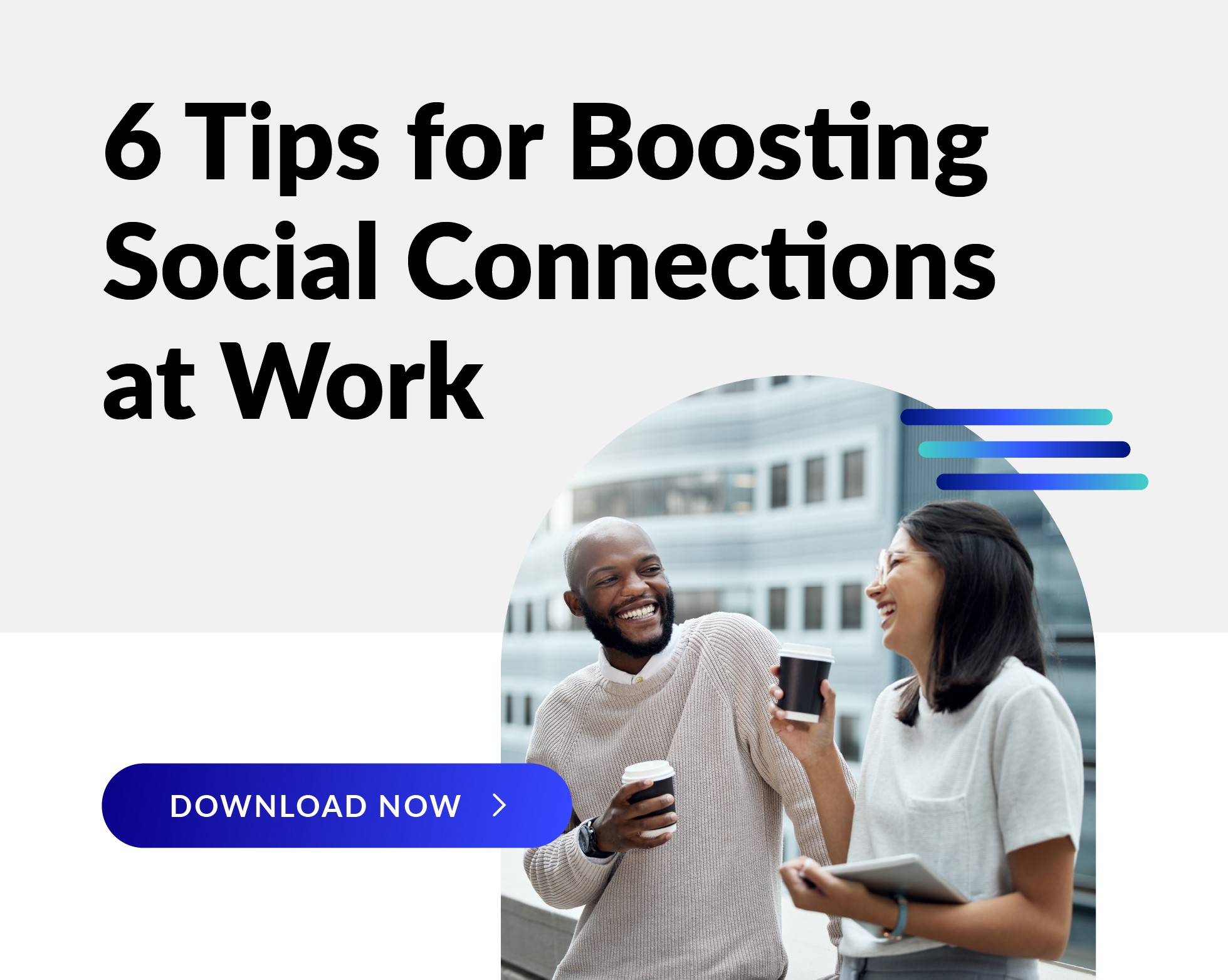 New Year’s resolutions tend to center around physical wellness—exercising more, eating better, drinking more water. And those are still great goals for 2021! But, given the challenges of this past year and the heightened focus on mental health, it might be a good time to finally make room for mindfulness. Research shows that in addition to the individual benefits of mindfulness, organizations that encourage the practice among their employees reap benefits, too. In this blog, we share some thoughts on mindfulness and what we can do to help employees make it a habit in 2021.
New Year’s resolutions tend to center around physical wellness—exercising more, eating better, drinking more water. And those are still great goals for 2021! But, given the challenges of this past year and the heightened focus on mental health, it might be a good time to finally make room for mindfulness. Research shows that in addition to the individual benefits of mindfulness, organizations that encourage the practice among their employees reap benefits, too. In this blog, we share some thoughts on mindfulness and what we can do to help employees make it a habit in 2021.
The benefits of mindfulness.
Mindfulness, or meditation, is all about paying close attention to what’s happening in the moment and being present. This forces our brain to calm down. As one of our Health Coaching Supervisors and resident mindfulness expert, Anita Rodolfo, likes to say, “Mindfulness gives your brain a break. We have so many to-dos running through our heads and things we can’t forget. Practicing mindfulness gives our brains a little vacation, even if it’s for a moment.”
In addition to the mental benefits of reducing stress and decreasing anxiety, mindfulness also has physical benefits. Studies show that mindfulness could cut down on symptoms of irritable bowel syndrome and migraines. Mindfulness has also been associated with lower blood pressure and blood sugar, better heart health, and can even improve sleep quality.1
Why our mindfulness attempts often fail.
In our society, we gravitate towards instant gratification. A recent Harvard Business Review article about mindfulness gives a good example of this attitude in action: when we work out physically, we feel tired and our muscles get sore, so we see this as an immediate sign that we are getting stronger. Mindfulness, however, takes time and a sustained commitment to see long-term results. People may give up because they don’t see positive impacts right away.
In the beginning, it may be hard to sit still and not be distracted by the thoughts running through your head or the noises around you. But, experts say this shows that you are on the right track and that your mind is in the process of learning how to calm down.
In the Harvard Business Review article, mindfulness expert Matthias Birk sums it up this way: “You have to do it, and you have to do it regularly — including when you don’t feel like it, so that over time your easily distractable mind learns to rest in open awareness, without constantly attaching to the next thought that comes by.”
Tips to make the mindfulness habit stick.
Mindfulness experts recommend these ways to make it a habit:
- Identify your “why.” It helps to pinpoint one reason why you’ve chosen to be mindful. Maybe you want to feel happier, calmer, be more focused or less stressed. Reminding yourself of this “why” can help you keep the commitment going.
- Set aside a designated time. As with most new habits, we need to commit to a particular time of day to engage in the practice. Just like with physical fitness, it’s good to block time on a calendar.
- Be OK with imperfection. Again, becoming mindful doesn’t happen overnight. When you first start out, you should expect your mind to be busy and easily distracted. That will lessen over time.
- Try not to judge. There is no such thing as a good or bad meditation, or succeeding or failing. Even the sessions you feel “didn’t go well” are helping.
- Be patient. Meditation is a journey, not a sprint. The benefits will be realized gradually over time.
How organizations benefit from mindfulness.
Some of the benefits of mindfulness for the individual also translate to the organizational level. When employees practice mindfulness, we often see:
- More empathetic leadership. In “Why Leaders Need Meditation Now More Than Ever,” Matthias Birk reasons that “one of the most important advantages of meditation is that it allows us to step out of our own survival centric thinking and connect with others empathetically.” This is so important for leaders right now.
- Better mental health. Over half of Americans report struggling with mental health—especially these days—so anything we can do to support employees’ mental wellness is a win.
- Improved productivity and creativity. Meditation improves focus, which leads to greater productivity and might even inspire creativity.
- Greater engagement. Mindfulness is known to create feelings of happiness, which may, in turn, lead to greater satisfaction on the job and overall engagement.
We’ll leave you with some inspiration.
Anita Rodolfo shares her own mindfulness practice and offers some encouragement for those just starting out:
“I like to give myself a mindfulness break first thing when I sit at my desk. I try to notice three things: something I see (like a bird outside), something I hear (like the coffee pot brewing), and something I can touch (like the softness of the sweater I am wearing). There are lots of ways to take these “brain breaks” of mindfulness—taking deep breaths, closing your eyes, and picturing a favorite spot. The key is to remember that mindfulness can be practiced anywhere and at any time. The more you take those breaks, the faster your body will accustom itself to letting your thoughts go, even for a few minutes.”
We’re feeling inspired already! If you are, too, then perhaps include an article about starting a mindfulness habit in your January employee well-being newsletter. Feel free to use these tips. It’s the perfect way to show your organization’s support for employee mental health, especially as we close the book on an incredibly stressful and difficult year and look ahead to better times in 2021.
Related Content:

